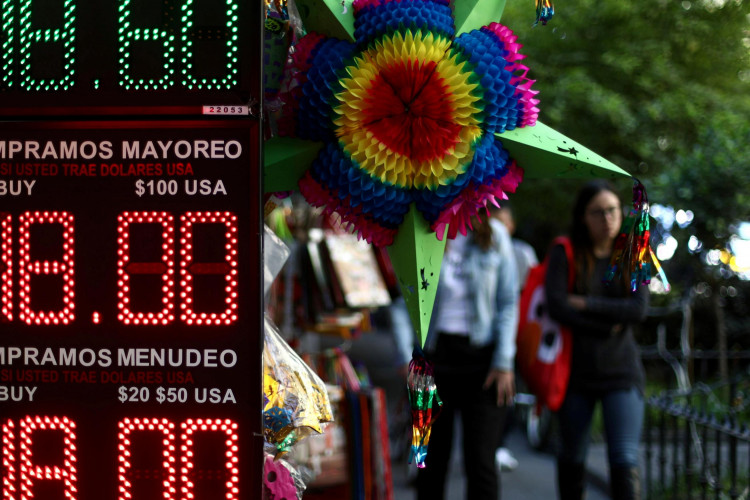Since pouring in more than $14 trillion to investor portfolios in the past 10 years, emerging markets are about to embark on another year of wealth generation.
According to Bloomberg's survey of 57 global investors, strategists and traders on their outlook for next year, developing-nation assets would outperform their established peers, with Asia having the best prospects.
Total wealth currently exceeds $27 trillion in emerging market stocks and bonds, higher than the combined US and German economies.
The trade dispute between China and the U.S. that dominated market movements during 2019 will remain the primary driving force, although China's growth outlook eclipsed Federal Reserve monetary policy as the second most important factor.
The haven pile will be less of a priority as some central banks join holding trends from tighter monetary policies after a wave of global easing has led to more than $11 trillion in negative-yielding debt.
All emerging market assets - currencies, stocks and bonds - make a comeback this year after reporting their biggest losses in 2018 in three years as the Federal Reserve led global central banks to cut benchmark rates to help flagging inflation.
Russia's ruble, this year's best-performing emerging currency through Dec. 24, surpassed the Brazilian real to become the top pick in 2020, while Indonesia was the most preferred both for bonds and stocks.
"I am still pretty bullish on emerging markets going into 2020," said Takeshi Yokouchi, a senior fund manager based in Tokyo at Sumitomo Mitsui DS Asset Management Co., managing $160 billion in assets.
Yokouchi pointed out that there are still supporting factors for emerging markets, with very low global levels, which will allow investors to look at "higher-yielding assets."
According to data compiled by Bloomberg, the total equity valuation of 26 nations listed by MSCI Inc. as emerging markets rose by $9.2 trillion from the end of 2009 through Dec. 24.
Meanwhile, Bloomberg Barclays bond indexes covering a larger swathe of emerging economies indicate that local currency bonds added $3 trillion, US dollar bonds added $1.7 trillion, and euro-denominated securities increased $219 trillion over the period.
The equity gauge of MSCI Inc. rose by Christmas Eve about 15 percent in 2019, and its currency barometer added 2.5 percent.
Asia retained its top currency and stock spot, while Latin America, troubled this year by a rise in political unrest, overtook Asia for bonds.
The least preferred for bonds and equities was Asia, the Middle East and Africa, but pushed one notch up for currencies. High-yielding assets dominated the region-wide top spots, reflecting continued competition.






